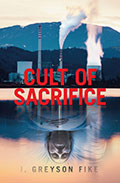
 |
The novel as social criticism has a storied history in America. As far back as 1906, Upton Sinclair's The Jungle exposed abhorrent conditions and practices in the meat-packing industry. That tradition of storytelling to expose societal abuses and inequities is alive and well in author Fike's chronicle of one man's quest to both avenge past wrongs and stop the continuing exploitation of citizens simply because of who they are and where they live.
Fike's novel traces the life of Harvey, a young man who sees his mother and father succumb to the ravishes of living in a community sacrificed to the altar of capitalism. For decades, the citizenry has been forced to coexist with toxic water and fouled air from industrial pollution. Harvey escapes his environment to build a life as a professional photographer. However, he returns in his retirement years to take on the business interests that have turned a mostly minority population into sacrificial inhabitants, where commerce is king and public health a forgotten afterthought. As he tries to make a positive difference, Harvey's service on the city council will see him experience both victories and defeats as he challenges corrupt businessmen and their goons who are dedicated to maintaining the status quo.
Fike is a first-rate writer who weaves an involving tale and fills his story with memorable characters. He's particularly adept at depicting action sequences often filled with violent mayhem. While he provides insights and information into both his heroes and villains' behavior and motivation, there is never a doubt as to which side Fike is on when it comes to economic excess versus the public good. His novel is meant to advocate as well as entertain.